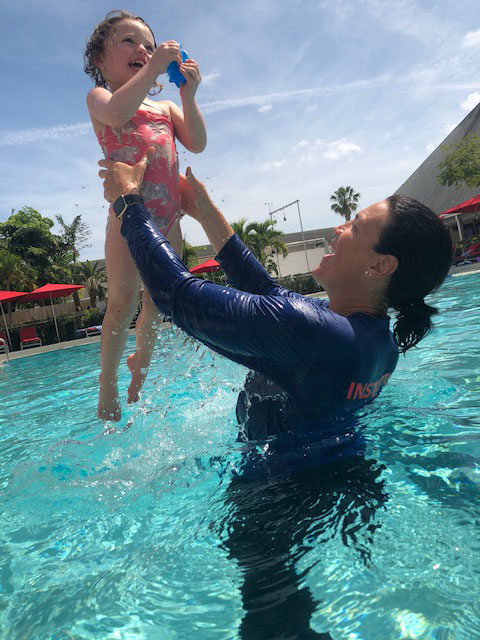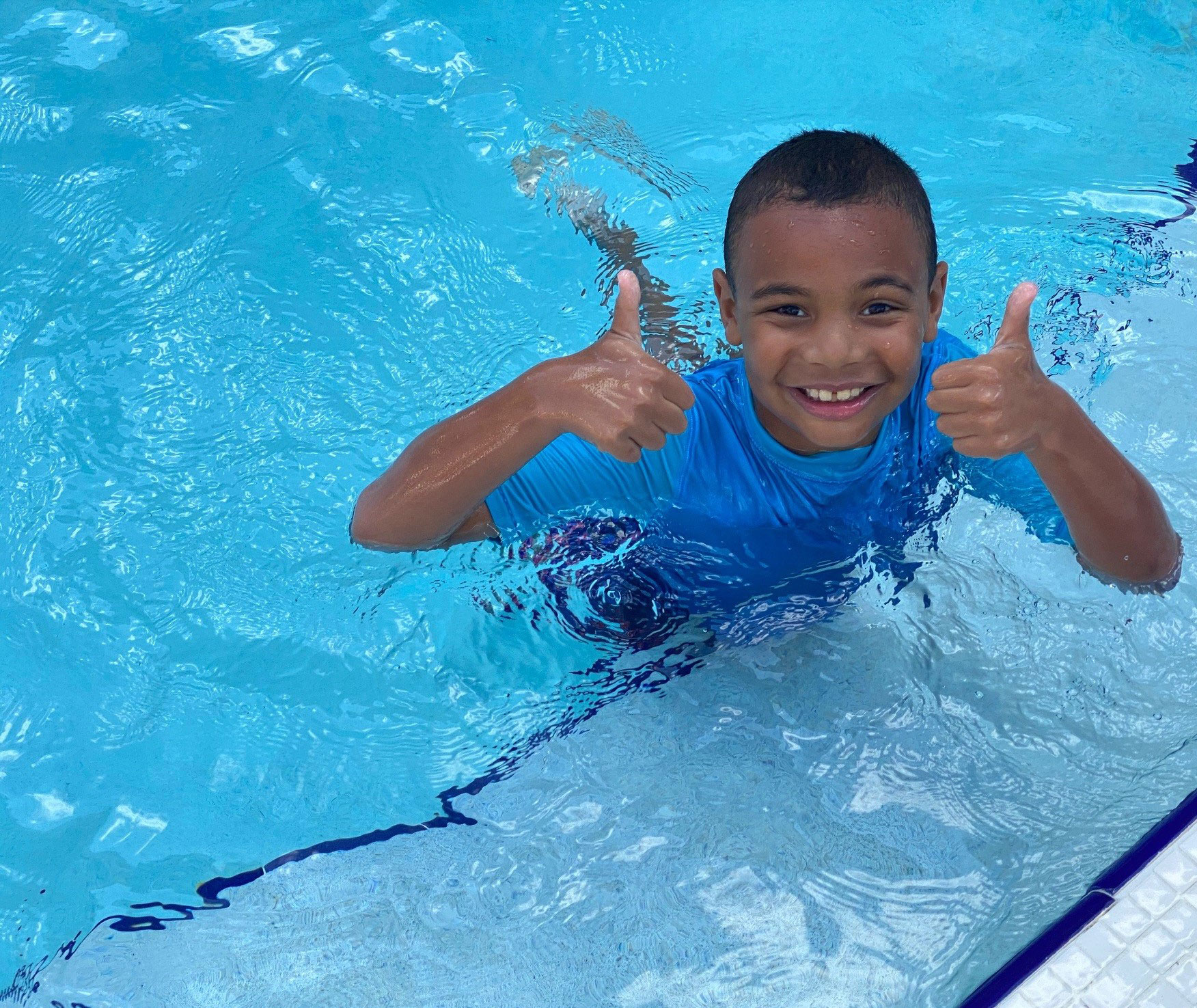Exploring the Advantages of Taking a Swimming Lesson for Physical Fitness and Safety And Security
Swimming lessons offer a multifaceted possibility for people seeking to improve their fitness levels while concurrently acquiring vital security skills. Taking part in this low-impact workout not only advertises cardio health and wellness and muscle stamina however additionally cultivates enhanced versatility and control. In addition, the acquisition of essential security strategies can prove important in emergency situation scenarios. As individuals navigate the intricacies of the water, they might likewise experience improvements in confidence and total psychological well-being. The implications of these advantages necessitate additional exploration, specifically relating to exactly how they jointly contribute to a much safer and much healthier way of living.
Enhanced Cardiovascular Wellness
Swimming lessons contribute substantially to boosted cardio health by engaging several muscle mass teams in a low-impact atmosphere. The rhythmic nature of swimming advertises reliable heart feature, boosting total circulatory efficiency.
Moreover, swimming is an outstanding choice for people with joint problems or those recuperating from injury, as the buoyancy of water eases stress on the body while still supplying a durable exercise. Regular participation in swimming lessons can cause enhanced endurance and stamina, enabling individuals to sustain physical activity for longer durations.
Additionally, swimming can aid in weight management, as it melts a significant number of calories, additionally adding to cardiovascular health and wellness. Participating in swimming lessons not only improves fitness levels but also infuses essential safety and security abilities, guaranteeing individuals are planned for water-related emergencies. Overall, swimming functions as a thorough approach to strengthening cardiovascular health and wellness, integrating physical fitness advantages with crucial life-saving skills.

Enhanced Muscle Mass Toughness
Engaging in swimming lessons not only advertises cardiovascular health yet additionally significantly boosts muscular tissue strength. Swimming is a resistance-based task, where water provides an all-natural medium that challenges the muscle mass greater than several land-based workouts. The buoyancy of water permits people to execute motions that engage numerous muscular tissue groups at the same time, promoting balanced muscle mass development.
As swimmers drive themselves through the water, they largely make use of major muscle groups, consisting of the arms, legs, back, and core. Each stroke calls for coordination and strength, which aids to construct lean muscle mass and enhance overall stamina. The freestyle stroke involves the shoulders, chest, and triceps muscles, while the breaststroke activates the legs and core.

Raised Flexibility and Coordination
One of the key advantages of getting involved in swimming lessons is the significant enhancement in adaptability and coordination. Swimming entails a wide range of motions that involve different muscle mass groups, advertising greater joint flexibility and overall body flexibility.
Furthermore, swimming lessons highlight control through the synchronization of arm and leg activities while keeping proper body placement in the water. Baby Otter Swim School. Mastering techniques such as breathing patterns and stroke timing needs a high degree of neuromuscular control. As swimmers exercise these abilities, they establish an enhanced ability to coordinate their activities properly, which can profit other exercises and sporting activities
Security Skills for Aquatic Atmospheres
Frequently participating in swimming lessons outfits people with vital safety and security skills for water atmospheres. These abilities are essential in preventing accidents and ensuring a much safer experience in and around water. Guideline typically emphasizes the value of recognizing water problems, identifying hazards, and using appropriate techniques for secure entry and leave from water settings.
A basic component of swimming lessons is teaching individuals exactly how to drift and walk water, crucial abilities that improve survival in unforeseen scenarios. Furthermore, swimmers learn effective breathing methods, which are essential for maintaining composure in difficult situations - How read this To Become A Swim Instructor. Lessons also cover the significance of buddy systems and the requirement to stay within designated swimming areas to minimize threats
Furthermore, swimming trainers usually supply education on recognizing signs of distress in oneself and hop over to here others, cultivating a proactive technique to security. This recognition consists of understanding when to look for aid and exactly how to correctly aid a person in problem, therefore instilling a sense of duty amongst swimmers.
Boosted Self-confidence and Mental Health
As individuals proceed via swimming lessons, they typically experience a substantial increase in confidence and mental health. Mastering new skills, such as floating, stroking, and breathing techniques, promotes a feeling of accomplishment that goes beyond the swimming pool. This newfound confidence not only enhances their swimming abilities but also encourages a favorable self-image, adding to enhanced psychological health and wellness.
In addition, swimming lessons create an atmosphere where individuals can confront and conquer personal challenges, such as anxiety of water or anxiety related to swimming. As pupils browse these obstacles, they grow strength and a feeling of empowerment. The encouraging atmosphere of lessons, typically directed by skilled trainers, enables participants to share Full Article setbacks and successes, strengthening social links that enhance psychological well-being.
Furthermore, involving in exercise, such as swimming, is understood to launch endorphins, which can aid alleviate tension and boost mood. This combination of physical workout and personal achievement makes swimming lessons an all natural technique to enhancing overall health. Eventually, the self-confidence gained through swimming not only raises an individual's aquatic abilities but also enhances their life past the pool, promoting a healthier, a lot more meeting lifestyle.
Final Thought
In verdict, swimming lessons use considerable advantages that include both physical fitness and security. The improvement in cardiovascular wellness, enhancement of muscle stamina, and boosted adaptability add to general physical well-being. In addition, the acquisition of vital safety and security abilities in water settings ensures readiness for emergencies. The boost in self-confidence and psychological health lowers and promotes a positive self-image stress. Collectively, these advantages highlight the importance of swimming lessons as a comprehensive approach to health and wellness in water.
Swimming lessons provide a multifaceted chance for individuals seeking to improve their health and fitness degrees while at the same time getting vital security abilities.Swimming lessons add substantially to improved cardiovascular wellness by involving multiple muscle mass groups in a low-impact environment. Lessons likewise cover the importance of pal systems and the requirement to remain within assigned swimming areas to minimize risks.
As individuals advance with swimming lessons, they typically experience a significant boost in confidence and psychological health.Additionally, swimming lessons develop an atmosphere where people can challenge and get over individual challenges, such as anxiety of water or anxiousness connected with swimming.